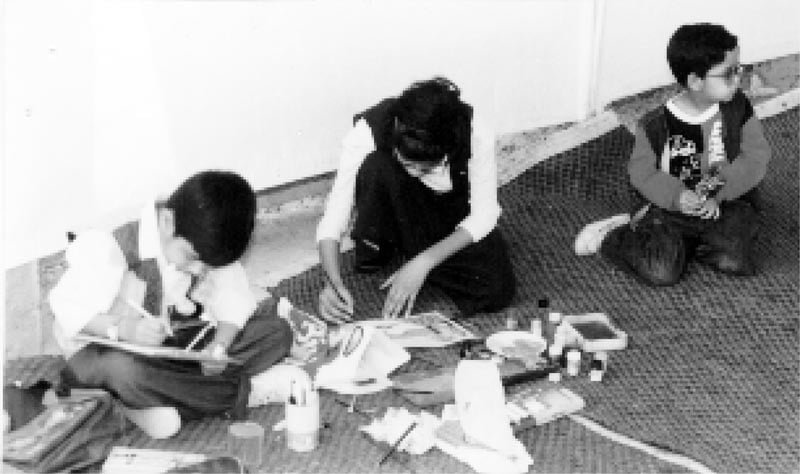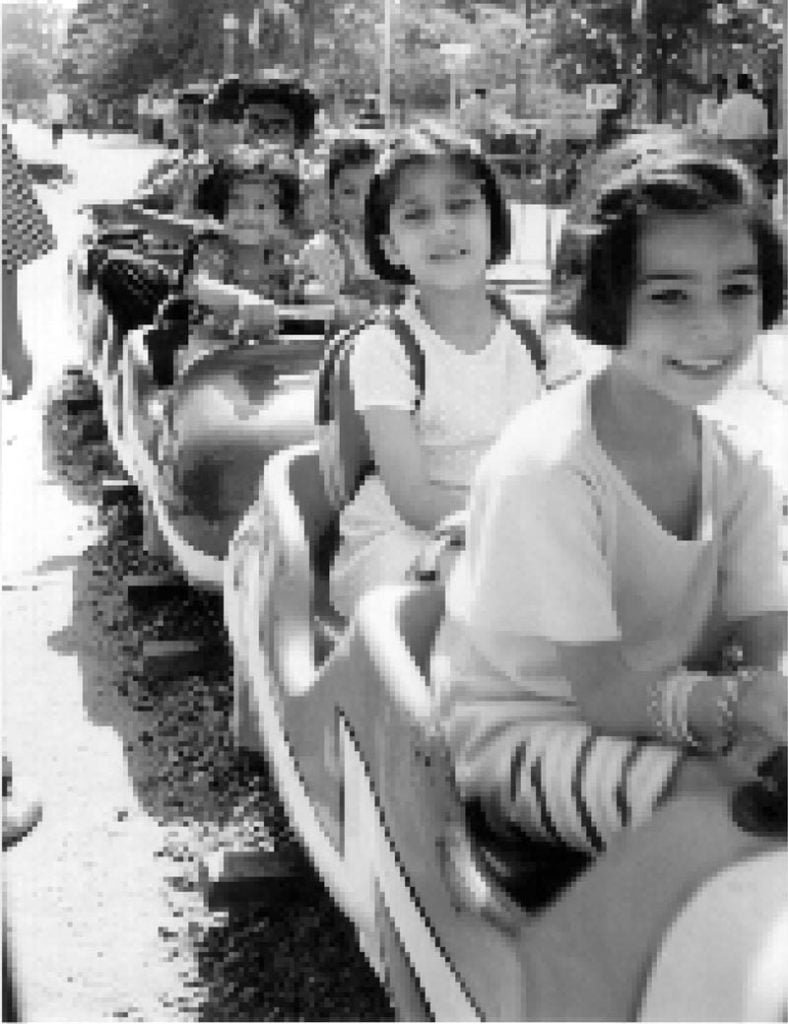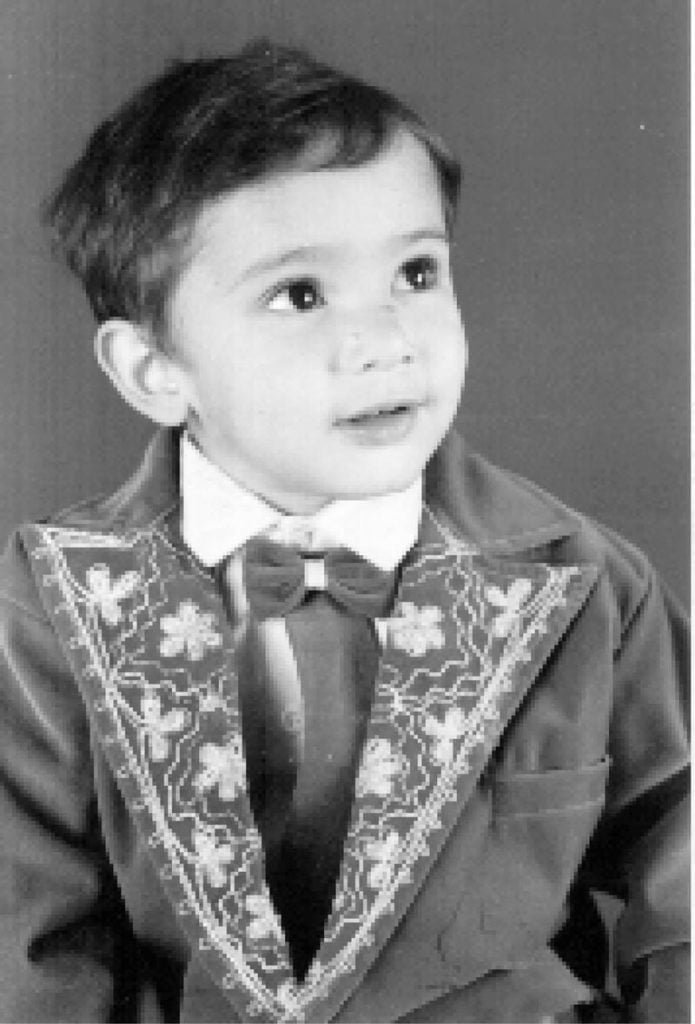All parents desire their sons and daughters to be endowed with all that is good under the sun. They spend their time, money and resources with gay abandon and yet their children remain mediocre. How come?
Milestones in child’s unfolding
Talented, capable, healthy, and successful child is every parents fond aspiration. Every couple wants their offspring to be uniquely gifted, and for that they try their level best. Talent, simply put, means success. Those who are successful in various fields of activities, are adored by all. They also remain a source of inspiration for others.
In other words it is proper planning that spells success. Success is nothing but end result of planned and judicious use of human, natural, and demographic resources.
Indeed there are some lucky ones who by virtue of their lineage or inheritance become prosperous overnight, without proactively working toward it. Such people are never rated exemplary irrespective of their name or fame. And for good reasons too. For, these babies of destiny have no spark to inspire or motivate others.
Penance is no fly in the pan
Only a man of substance can practice abnegation. Penance lies at the core of talent. Moron tend to believe that their commitment will serve no purpose. So why not make hay while sun shines. No endeavour can redeem itself in short span of time. The first step to penance is to gear up for penance. Self-mortification demands patience.
—Harivansh Rai Bachchan
Such people, infact, are not deemed as successful. They may, at best be counted among the very rich and the peerage.

Success in life, in fact, is a saga of never ending struggle. What is achieved by way of chance or destiny is ephemeral and not accepted by people as success in real sense. One who steals a briefcase of currency notes, or wins fortune on a lottery ticket, can scarce make an entrepreneur or a successful businessman. On the contrary, common man is inspired by intrepid workers like late Mr Jamshed Ji Tata. Ambitious youths in the maze of business world look up to him with deep reverence.
It is with such prodigies in mind that a poet has penned these following lines :
Burnt to Ashes
In the crucible of life
They became sacrosanct.
People of such mettle
Fight even death.
Hurdles of journey
Can scarce keep
Dauntless traveller
Away from destination.
All you need
Is a will to move
Your feet then
Do the rest.
There are names galore who were nonentities at a point of time but went on to reach zenith of fame and prosperity. More importantly, they inspired a whole lot of human generation to lead a better life.
Sanguine struggle is key to sanguine success
Struggle in right manner is immensely enriching experience. Those who don’t have well defined aims and objective in life, can scarce use available resources. Otherwise how come we hear a Minister’s son implicated in rape case, or a top official’s son turning to crime. There are examples galore where a family’s resourcefulness becomes the prime reason for their children going bersek.
India’s Prime Minister Lal Bahadur Shastri, who coined the slogan ‘Jai Jawan Jai Kisan,’ was a man of humble origin. When he went to school a river fell on way and sometimes he had no money to pay to ferry. Yet, his single pointed determination won him coveted title of Shashtri. (the learned one).
The child Lal Bahadur would swim across river to reach his school whenever bereft of paltry two paise—the fee charged by boatman to ferry him across. And back from school he would again swim across river to reach home. No wonder, for rest of his life too he swam across all problems with dexterity of expert swimmer. When he was nothing to rest of the world, he was a simpleton. When reached top of the world position, even then he retained his erstwhile simplicity and gentlemanliness.
A youngster named Bhim Rao Ambedkar grew under more trying conditions than Lal Bahadur Shashtri. He was even denied education as was customary in those days to deny learning to low class (Dalits) people. Passing through myriad cruelties, discriminations, and prangs of injustice; Bhimrao did finally reach peak erudition and made India proud. When questions arose of scripting Indian constitution, VVIPs like Pt. Jawahar Lal Nehru, Maulana Abul Kalam Azad and Dr. Rajendra Prasad had no qualms choosing Dr. Bhimrao for the formidable job.
It was same Bhimrao Ambedkar who would sit outside his class of upper caste students to learn three R’s, who later on rose to become first Law Minister of independent India.
Jagdish Chandra Basu, the famed Indian scientist had his primary education in a school of farmers, daily wagers, and fishermen’s children. His father was a Deputy Magistrate, and their butler’s son was his school mate. His father had no reservations in sending him to an academy patronised by a humble community. Indeed nobody must have thought at that time that a simple looking child like Basu would become a scientist of tall order and get membership of England’s august Royal Society.
Unravelling children’s hidden talents
Those parents who desire holistic development of their child’s personality should try to bring out his hidden capabilities. World history is replete with examples of stalwarts who had guts and determination to reach such heights as made mockery of prevailing scales of human achievement. Success to them was as minuscule as dust on their feet. Children who go on honing their abilities, potentialities, erudition, and intellect—will surely be successful.
Chanakya Niti Darpan 8—19/20 says:
What use belonging to high status family if you are not educated? A learned man, even if he comes from a poor family, is revered because world appreciates erudition and a wise man is respected all over the world. It is education alone which gives you money, honour, status, name, fame and passport to a meaningful existence. Scholars are venerated everywhere.

Aim should be apt and unflinching
There is a need to instill spirit of dogged determination in kids right from childhood itself. To be deemed successful and talented, daunting determination is a must. It is difficult to deliver good with a flinching resolve. The spirit should be, ‘I will take rest only after completion of this work.’
When Plank was a young scholar, it was widely believed that science of physics had reached a saturation point and that there was no scope in it for further research work. His school teachers in Germany clearly told him this, yet Plank decided to study physics only. He worked hard and earned his Ph.D. at a relatively young age of 21 years only. At a science conclave held in Berlin on 14th Dec 1900, he, for first time ever, used the word ‘Quantum’. Plank was then only 42 years old. And the rest is history. Idea of ‘Quantum’ proved to be a giant leap for the physical sciences.

Self-confidence comes first
Top notch quality in a man who goes places, is self confidence. It is one element that make you win all battles of life with ease. Indeed children must be told to trust their selves, earlier the better. Pessimism and lethargy take you nowhere. Truly speaking, self confidence is key note for reaching your destination. It is the very backbone of a successful person.
Panchatantra makes it clear, that only a self confident person swims back to safety when a ship wrecks on high seas.
Noted philosopher Swet Marden writes : ‘Self confidence and self dependence have always scored one up on friendship, lineage, money and recommendation. Self confidence is best of worldly assets. It over comes majority of problems. It wins over odds. Heroic deeds accomplished by dint of self confidence far outnumber those done by other pluses of mankind.
Invoking self confidence in children is easy going by the advice of Abraham Lincoln, who said :
‘No child should be scolded or plied for failing in a given task. Because all beings are products of time and circumstances, and subject to our environment, education, heritage and demeanour.’
Children inspired and encouraged, go places. Warm felicitations for doing well does wonders for child. Self esteem is central to a dynamic personality. Help children have faith in themselves. Let them have their way in whatever they want to do or desire.
Swami Vivekananda exhorted—‘Trust—trust in self, and in God; this alone is secret of success in life. If you believe in 33 crores of gods and goddesses of ‘Puranas’ and in angels described by Westerners, but not in your own self, your belief will not help you. So have faith in your own ability, remain steadfast, and become formidable.’
Morarji Desai, when facing his interview for civil services exam was asked, ‘Will you be depressed if not selected?’ A confident Desai shot back—‘Not at all. I still have so many opportunities to look up to.’ No wonder, Desai was selected on his own merit (without recommendation). And then rose to the status of India’s Premiership. This indeed is typical example of what self confidence can achieve.
Good behaviour goes places
Right conduct does wonders. If adopted at a young age one can reap unlimited bounties in life. Looks are important, but behaviour is more so. A happy go lucky person, who knows how to interact, is bound to impress others.
Let children have no doubts in their mind regarding biblical adage, “Do unto others, as you would have others do unto you.” How you deal with others reflects who you are. Disraili famously said that behaviour can turn mud into gold. Our behaviour and conduct is epitome of our family, culture, education and abilities. Respect you get commensurates to the manner of
your public dealing. The great poet Bhavbhooti aptly said :
“What is worshiped
Is merit of behaviour.
Not your gender
Nor age.”
Chanakya too upheld that a man is rated rightly only the basis of his noble traits, good conduct, sobriety and character. One doesn’t become great merely by sitting on an august seat. Just as crow doesn’t become hawk merely by sitting on peak of a big mansion.
Our behaviour can make or mar our relationships. If we are cordial to all, our relationships remains sweet. But when we derelict in behaviour, we loose our honour and dignity.

Give way to creative urge of tiny tots
It is common knowledge that all men have hidden talents. Some develop them, others remain oblivious of them. Some sing well, others are good cook. Some paint well, others write well. Infact creative urge of every shade and description seeks an outlet. And childhood is the right time to unravel these talents. If a child is encouraged in same direction as his innate drive, he will succeed and flourish.
Those parents who see some merit in their seemingly naughty children, should focus attention on their pluses and guide them in right direction.
Dwelling on creativity, Acharya Shivananda says that failure and heart breaks can be blessings in disguise if viewed in right perspective. On the flips side a jilted child may become violent for emotional catharsis. The crux therefore is to provide apt medium for expression of pent up emotions so that this energy is used constructively and not destructively. Reverses, like vapours of steam, can work as potent force for creative feats. Sorrows, dejection and endless anxiety have often produced literary and philosophical works, scientific inventions, and discoveries of top order. Setbacks can arouse and sharpen will power to win at all costs. They make a man accept challenges head on and do the impossible. A man passing through odds and ordeals is high and dry making his own way. Yet, in the long last, he is a dashing winner with beautiful smile and crowning glory.
Jettison inferiority complex
As children grow up, so do their feelings and emotions that matter. Significantly, infants consider themselves as extension of their parent’s personalities. Just recall how the tiny tots address to their own selves in early childhood days. Their dispensation runs thus : ‘Tinku wants bread’ or, ‘Tinny will not drink milk.’
As time passes by, youngsters learn to separate their selves from their environment. Just then, the feeling of ‘I’ (ME) dawns in them. Awareness of self, or ‘I’, to begin with, is limited to family circles. Subsequently, child learns to relate his person to a wider arena of society and community.
Parents’ attitude towards their children decides the manner of ego, or ‘I’, shown by their little ones. If parents are given to scolding and rubbishing their wards, children will naturally suffer from inferiority complex. For many a guardians it is routine to call their children names. Lamentations like, “Why the hell were you born in this family?” Or, “Ever since Ankit (the other child) was born, there is happiness in family in bountiful.” Or, “Our younger son is our lucky mascot.” Such utterances irk young ones no end. No child, talented or below-average, will ever relish comparison with another child. This ruffles his self confidence and he falls in a maze of negative thoughts.
If a sapling is repeatedly uprooted and resown, it will not take roots and grow normally. Even a feeble brush of wind will raze it to ground. Nor will it withstand scorching sunlight, rain, and hail storm. This should suffice to indicate that childhood being and highly vulnerable stage, parents should exercise utmost caution in dealing with children.
Minors with unstable mind and volatile temperament don’t grow up in body weight alone. Their sub-conscious cravings grow as well. Traumatic experiences of childhood colour their perceptions for ever. So much so that even if they are praised for some good-work, they remain unmoved. Children lacking in confidence make supine and servile adults. On the flip side they are given to bouts of anger and extreme swings of mood.
Children with tumultuous childhood nurse injured egos and remain by and large narrow minded.
Another possibility is that they develop superiority complex on surface, and behave like intrepid idealist. Even as there is no such thing as superiority complex in realm of human psychology, the term is apt for argument sake, and connotes recoil action to the status of inferiority complex.
Improve your interaction with children
A good speaker knows how to present his view point to others in an impressive manner. You should constantly endeavour to polish your diatribe to influence children favourably. One who knows how to talk and how to react, is successful in life. Indeed there are many amongst us who feel uncomfortable putting their views across to others. When called upon to make a presentation they go weak in the knees, perspire and stammer. This is more likely a case for those denied such opportunities in childhood. So when they grew up they lack enough of courage, confidence and vocabulary to express themselves even in critical situations.
Cocurricular activities, carnivals and stage competitions in schools and colleges gives an opportunity to student to express themselves before an audience. For admission to many a courses and jobs, passing through a test of ‘group-discussions’ is mandatory. Even otherwise, we may be called upon to express our views in myriad social, religious and political conclaves, as well as in cultural programmes.
When we are audience to one of such functions, we note that some speakers are extremely impressive, while others are bore. To win hearts, and find a niche in popularity chart, effective speaking is a must. Right from the very beginning, children should be encouraged to express their views on a chosen subject. For this you can set the ball rolling by telling children about a great personality, birds, animals, or a popular film star, and then inviting their opinion on same. This will pull them into debate, boost their confidence, and make them good speakers.
Remember
❑ Children should be allowed to play as much as they can. This will ensure their muscular development, keen hunger, and a sound health.
❑ Keep children away from fear and worries. Avoid narrating such instances to them as trigger these negative emotions. Yourself too must avoid being frightened and worried in front of children.
❑ Children should be counselled against ill effects of shouting, abusing and outbursts of anger. They should know that people with these negatives are never liked.

